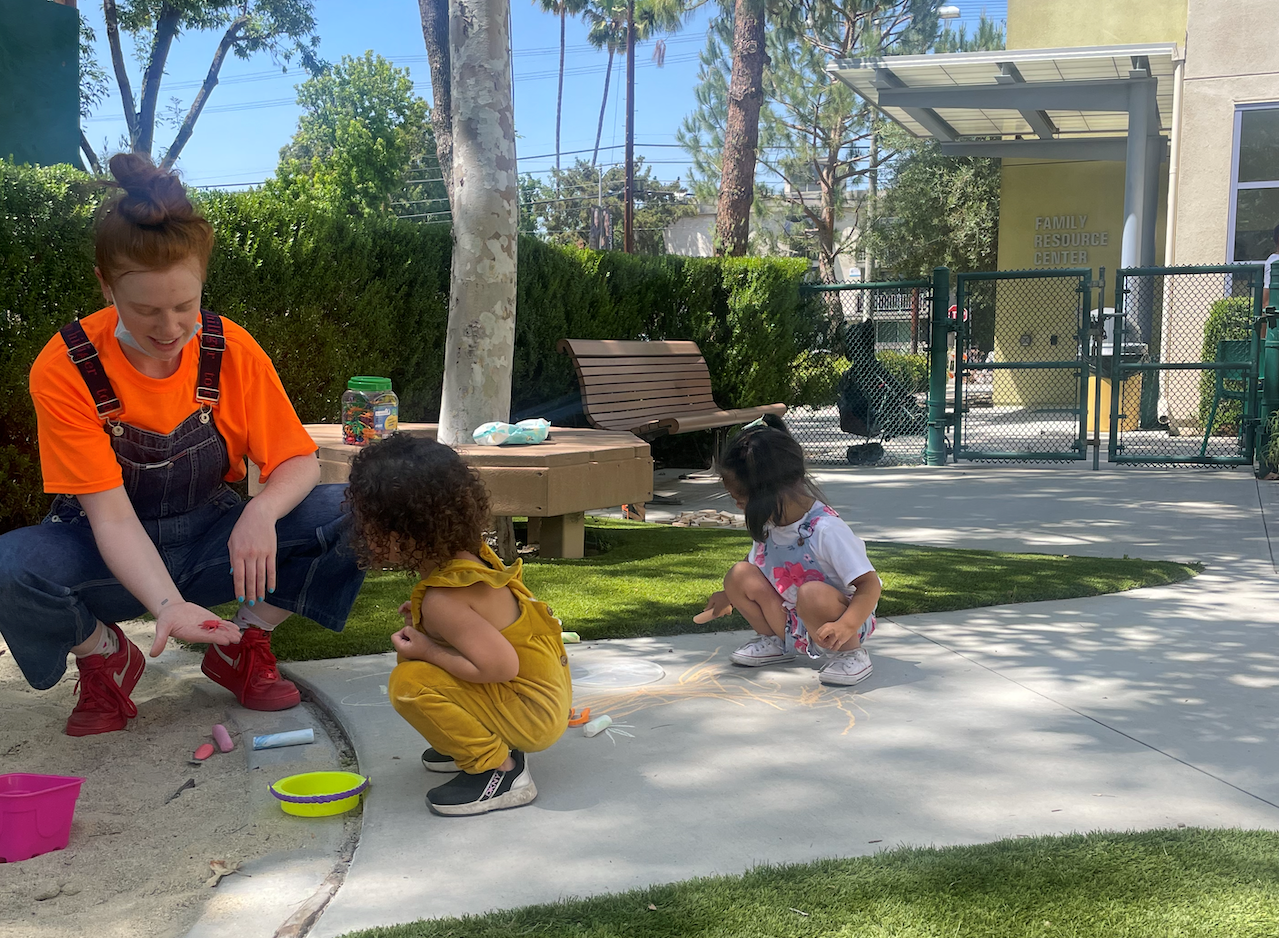Across the country, community colleges provide critical on-ramps to higher education and opportunities for skill enhancement for low-to-moderate-income families, including student parents, at a fraction of the cost of four-year private institutions. They are often a steppingstone to career advancement and economic security for parents and their children. But it is essential that student parents have the resources and tools to enable them to navigate their academic careers while also raising young children.
To explore promising avenues to providing these resources, the Institute for Women’s Policy Research conducted an analysis of the experiences of student parents enrolled at Los Angeles Valley College, highlighting barriers—family and academic stressors; lack of high quality, reliable child care; juggling family financial obligations and the cost of tuition, among others—to degree attainment. This review also included an in-depth analysis of how wrap-around services provided by the Family Resource Center (FRC) improve outcomes.
The results of this research were published in a brief and accompanying fact sheet authored by IWPR President and CEO C. Nicole Mason Ph.D. and Olivia Storz with research and editorial assistance from Maureen Coffey, Felicity Hector-Bruder, Chaunté White Ph.D., and Lindsey Reichlin Cruse. The findings were also presented in a webinar hosted by IWPR featuring key speakers, including Dr. C. Nicole Mason, President, and CEO, Institute for Women’s Policy Research; Amber Angel, Program Officer, ECMC Foundation; Marni Roosevelt, Founder, Los Angeles Valley College Family Resource Center; Luma Haddad, Program Specialist, Los Angeles Valley College Family Resource Center; Lorena Holbrook, Student Parent Program Alumna, Los Angeles Valley College Family Resource Center; and Andra Hoffman, President, Board of Trustees, Los Angeles Community College District. The research was made possible with the support of ECMC Foundation.
The pandemic and the most recent economic downturn have had a devastating impact on enrollment at community colleges nationwide—enrolling 15 percent fewer students compared to two years earlier (Bulman and Fairlie 2021). During periods of economic shock or uncertainty, enrollment at two-year institutions surges as adults—young and old—seek out new skills or education to give them a competitive edge in the labor market. However, for many student parents, returning to the classroom during the pandemic was not a viable option because school and daycare closures increased their caretaking responsibilities. Financial precarity, unemployment, and broader uncertainty also challenged families.
The California Community Colleges (CCC) system was not exempt from the impact of the pandemic on student enrollment. The entire system experienced a 15 percent decline in enrollment over the previous year. Black and Latina/o students—who comprise one-third and one-fifth of enrolled student parents in the CCC system, respectively—experienced even sharper declines in enrollment compared to other groups of students (Bulman and Fairlie 2021). As the nation turns to recovery, it will be important to ensure student parents have the supports they need to remain enrolled and obtain their degrees.
Challenges aside, IWPR’s research revealed that the Family Resource Center in the LAVC District positively affected participating students.
- Thirty-six (36) percent of LAVC respondents strongly agreed that because of the FRC, they were able to remain enrolled in school.
- Twenty-six (26) percent of FRC users earned a degree or certificate, including an associate’s or career and certificate program, from Summer 2018 through Spring 2021. This is twice the rate of student parents who did not report utilizing the services or programs of the FRC.
The FRC was also clearly needed by students who expressed a variety of challenges, especially when it comes to balancing competing and multiple demands, with just over 77 percent of student parents indicating that balancing work, school, and home life was a significant stressor.
- Reliable and affordable child care was a primary barrier. Close to one-third of student parents surveyed reported that the cost of childcare was a financial burden and an impediment to degree completion. About 31 percent of survey respondents reported paying $100 or more per week for child care, totaling more than $5,000 each year.
- Among the 65 percent of survey respondents who paid out-of-pocket for child care arrangements, nearly 40 percent reported losing reliable or consistent child care.
- Nearly 90 percent of respondents said that backup or emergency child care would be useful support, and over 80 percent expressed a desire to use drop-in, after-school, or weekend child care if such services were provided.
- Seventy-six (76) percent of student parents surveyed reported they struggled to stay on top of their course work or complete assignments. Forty-three (43) percent reported challenges finding a quiet place to study.
These needs aligned with FRC services, including child-friendly study spaces, counseling services, parenting classes, a virtual support group, laptops, internet, and printing services.
The greatest challenge for the FRC revealed by the IWPR analysis is low awareness among student parents at LAVC about the services the FRC provides to them and their children. Improving the visibility of the services provided by the FRC among student parents can help increase persistence and degree attainment for this group of students. Increasing student-parent representation in the decision-making process was recommended. Cross-organizational coordination and increasing funding were flagged as important next steps in the research.
The success of the Family Resource Center, particularly its impact on student persistence and graduation, provides a model for institutionalizing student parent success. Iterating on this example provides a path forward for policymakers committed to supporting these students.


